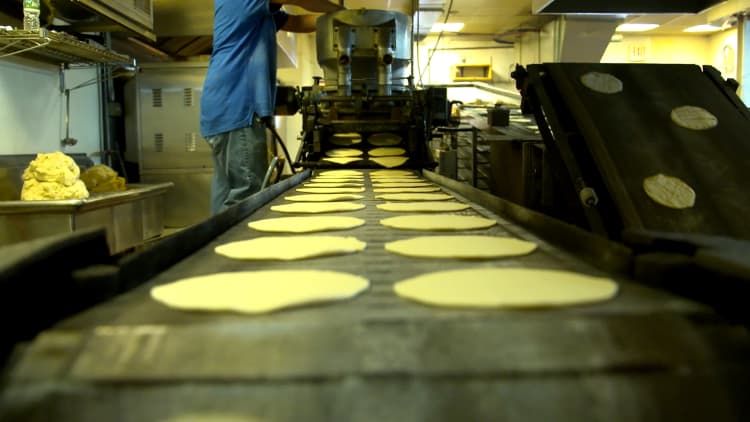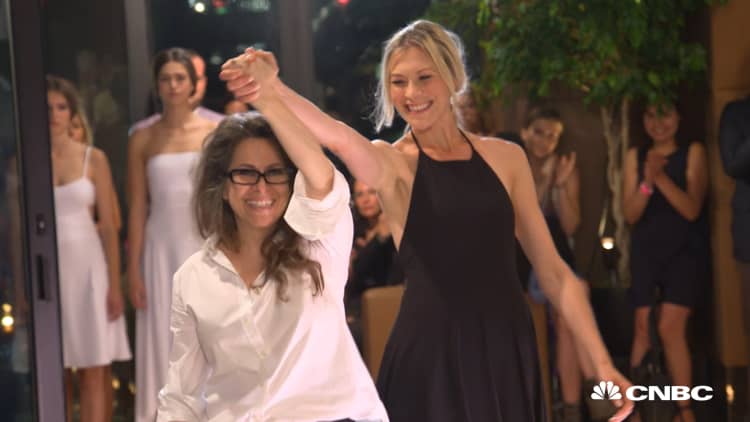When Susana Monaco launched her own fashion line for women in 1996, she thought if she worked hard and stayed focused on design, her company would succeed.
But despite being "born in the business," in Monaco's words, and having tremendous talent, her company, Susana Monaco, has been under-performing since 2009. Last year alone it suffered a net loss of $361,000, mainly because of low margins but also because of something more abstract: lackluster leadership.
On the latest episode of "The Profit," host and business guru Marcus Lemonis explains that running a successful business such as Monaco's namesake fashion label takes more than just creative genius; it requires a strong leader.
Monaco begins feeling burdened by her family on one side and her employees on the other. She doesn't have the confidence to stand up to either group.
Early on, Monaco's father Mario took control and unilaterally decided that Monaco should split stock of the company with her brothers equally. "He wants his family to be secure in life. This is old school way of doing things," Monaco explains.
Despite the fact that Monaco started and runs her business, her brothers who work for it, and who never put any of their own money into it, get two-thirds of it.
Since that decision, Monaco has faced continued problems from her family. "They think that I owe them more than I owe them," she explains. "There's no respect here for me at all."
In addition to family, Monaco must deal with an employee making a power play. Anna Pavel, Monaco's vice president of operations, makes most of the decisions for Monaco, earns nearly twice her salary, and complains that she doesn't have an equal ownership share in the business.
Monaco justifies Pavel's behavior. "She's making a lot of decisions here," she says. "She's the pit bull. I need a pit bull."
Though she tries to convince herself that she needs a strong employee like Pavel, Monaco also complains that she is no longer as creative as she used to be because her many attempts to experiment with new fabrics and create new designs are shot down by her VP.
"It's not where it started," Monaco says. "I've lost my feel to do beautiful things."
When Lemonis asks Monaco why it is so difficult for her to stand up for herself, Monaco says she is not used to being "front and center" and has become accustomed to "being beaten down."
But with Lemonis's gentle prodding, Monaco regains confidence. She begins to put her foot down and regain control of her business.
"I have to be able to say my opinion and say what I feel," Monaco tells Pavel. Monaco wants to continue their work partnership but "not in terms of [Pavel] bossing me around and telling me what to do."
Monaco also exudes more confidence, which helps her draw in and impress more customers.
At a sale for her fashion line, for example, instead of hiding in the back as she had done in the past, she interacts with her customers, demonstrating the appropriate pride and presence of a fashion designer with her own label.
By the end of the episode, Monaco puts on a fashion show for her spring/summer 2017 collection and allows herself to savor being in the limelight. She finally comes off as what she's long described a Susana Monaco woman to be: "a confident, chic, strong woman who feels confident about herself."
With newfound footing and a new perspective on what it means to be the owner and manager of a business, Monaco's sales begin to grow.
"You can't lose your backbone anymore," Lemonis tells Monaco. With a sense of confidence, Monaco assures him she won't.

CNBC's "The Profit" airs Tuesdays at 9:00 p.m. EDT.




